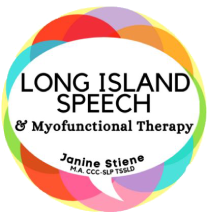Blog
Defining Cognitive Development
What is cognitive development? Cognitive development refers to the set of intellectual abilities that help children think, explore, and figure out things. It is the development or mental capacity for knowledge, skills, language acquisition, problem solving, and object relation. These skills help children to think about and understand the world around them, which forms the foundation for many other skills later in life. Brain development is also a part of cognitive development.
What is considered “typical” cognitive development?
Birth-3 months: Major developmental milestones at this age are centered around exploring basic senses, learning more about the body, and the environment.
- Pays attention to faces
- Begins to follow things with eyes and recognize people at distance
- Begins to act bored (cries/fussy) if activity does not change
3-6 months: Major developmental milestones at this age are centered around developing a stronger sense of perception (the ability to see, hear, or become aware of something through the senses).
- Responds to affection
- Imitates facial expressions
- Recognizes familiar people, faces, and things at a distance
- Looks around at things nearby
- Shows curiosity about things and tries to get things out of reach
7-12 months: Developmental milestones at this age are pivotal, as infants are able to explore the world around them in greater depth due to sitting up, crawling, and beginning to walk.
- Plays peek-a-boo
- Copies gestures
- Explores things in different ways, such as shaking, banging, and throwing
- Understands object permanence
- Looks at the right picture or thing when named
13-18 months: Major developmental milestones at this age range are centered around understanding/realizing the functional use of objects and beginning to engage in representational play. As infants pass the 1-year mark, they are better able to explore around them.
- Points to one body part & to get attention of others
- Identifies similar objects
- Imitates the actions and language of adults
- Shows interest in a doll/stuffed animal by pretending to feed
19-24 months: As infants approach the 2-year mark, they are more engaged in pretend play.
- Builds towers of 4 or more blocks
- Plays simple make-believe games
- Begins to sort shapes/colors
- Completes sentences & rhymes in familiar books
25-30 months: Children at this age spend a tremendous amount of time observing the actions of adults and those they spend the most time with.
- Sorts object by category
- Stacks rings on a peg from largest to smallest
- Matches objects with use/can name objects in a book
- Imitates more complex adult actions
31-36 months: Cognitive milestones at this age are important, as children are becoming increasingly more independent. They are better able to explore the world around them, learning more cognitive skills through their own experiences.
- Builds towers of more than 6 blocks
- Does puzzles with 3 or 4 pieces
- Plays make-believe with dolls, animals, and people
- Turns book pages one at a time
What is the impact of cognition on speech?
A delay in any of these areas of cognitive development can cause a delay in understanding and using language. This could appear as difficulty with different concepts such as prepositions, following directions, and adjectives. Children may also have academic difficulties that could manifest as they begin school. They may demonstrate difficulty with reasoning, forming relations, and understanding social rules. Treatment and early intervention could help children grow and learn to use these broad range of skills. Overall, speech therapy can bridge the gap between cognition and language development for your child.
References:
Centers for Disease Control and Prevention (2021). CDC’s Developmental Milestones. National Center on Birth Defects and Developmental Disabilities. Retrieved December 18, 2022, from https://www.cdc.gov/ncbddd/actearly/milestones/index.html.
Cherry, K. (2021, July 30). Important milestones of cognitive development in children. Verywell Mind. Retrieved December 18, 2022, from https://www.verywellmind.com/cognitive-developmental-milestones-2795109#toc-from-birth-to-3-months
Wilks, T., Gerber, R. J., & Erdie-Lalena, C. (2010). Developmental milestones: cognitive development. Pediatrics in Review, 31(9), 364-367.




